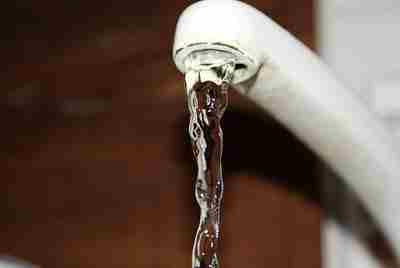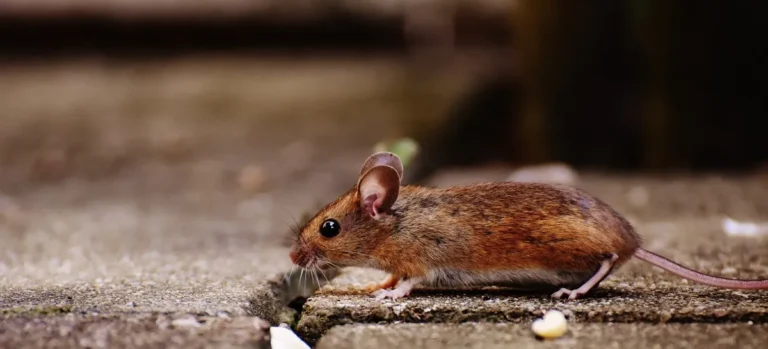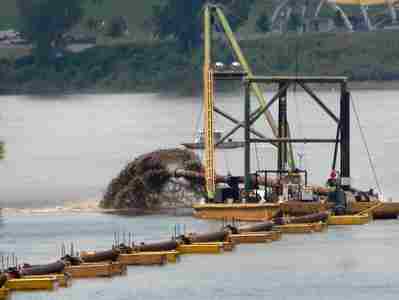Can Distilled Water Conduct Electricity? Overview of the Conductivity of Distilled Water
Distilled water does not conduct electricity because it is pure and lacks sufficient ionic concentration, diversity and potential to support any significant flow of electric current. This article answers the question; “can distilled water conduct electricity?” among others, as outlined below;
Is Distilled Water A Conductor?
Distilled water is a conductor of electricity, but not a GOOD conductor. It is a very poor conductor due to its low ionic content and ionization potential.
*Distilled water, also known as deionized water, is water that has been purified through a process of distillation. During distillation, impurities and minerals are removed, resulting in water that is almost entirely pure H2O molecules. This purity is what makes distilled water a poor conductor of electricity.
*In order for a substance to conduct electricity, it must contain charged particles, or ions, that can move freely within the material. These ions carry electric charge and allow for the flow of electric current. In the case of distilled water, the low ionic content means that there are very few ions present to facilitate the flow of electricity.
*For distilled water to conduct electricity with efficiency, it must be ‘contaminated’ with ionic substances like salts, acids, or alkalis. These substances dissociate in water, releasing ions that can carry electric charge. When dissolved in distilled water, these ionic substances increase the concentration of ions and enhance its conductivity.
*The presence of ions in water is crucial for its ability to conduct electricity. In the case of distilled water, the lack of ions limits its conductivity. The ionization potential of H+ and OH- ions in distilled water is also low, further reducing its ability to conduct electricity.
*It is important to note that even though distilled water is a poor conductor, it is not an insulator. An insulator is a material that does not conduct electricity at all. Distilled water still contains a small number of ions, albeit at a very low concentration. This means that it can still conduct electricity to some extent, although the conductivity is significantly lower compared to other substances.
Why Doesn’t Distilled Water Conduct Electricity?
Although it contains approximately 10-7 M each of H+ and OH- ions, distilled water does not conduct electricity to any significant degree. There are several reasons why distilled water doesn’t conduct electricity, include its purity, and low ionic concentration, among other factors discussed below;
1. It is Pure
Distilled water is highly pure and lacks conductive ionic species or impurities. During the distillation process, impurities and minerals are removed, resulting in water that is almost entirely pure H2O molecules. This high level of purity means that there are very few ions present in distilled water to facilitate the flow of electricity. Without the presence of ions, the conductivity of distilled water is significantly reduced.
2. Ionic Concentration is Low
In order for a substance to conduct electricity, it must contain charged particles or ions that can move freely within the material. These ions carry electric charge and allow for the flow of electric current. However, the low ionic content in distilled water means that there are very few ions available to carry electric charge. As a result, the conductivity of distilled water is greatly diminished.
3. H+ and OH- ions in Distilled Water Both Have Low Ionization Potentials
The ionization potential refers to the energy required to remove an electron from an atom or molecule, resulting in the formation of ions. In the case of distilled water, both the H+ and OH- ions have low ionization potentials. This means that it takes very little energy to remove an electron from these ions, resulting in a low concentration of ions in the water. The low concentration of ions further reduces the ability of distilled water to conduct electricity.

4. Metallic Ions of Salts, Acids, and/or Bases are Absent
For distilled water to conduct electricity efficiently, it must be “contaminated” with ionic substances like salts, acids, or bases. These substances dissociate in water, releasing ions that can carry electric charge. When dissolved in distilled water, these ionic substances increase the concentration of ions and enhance its conductivity. However, distilled water does not naturally contain these metallic ions, which limits its ability to conduct electricity.
5. Low Acidity and Salinity
The acidity and salinity of water can also affect its conductivity. Distilled water has a neutral pH and low salinity, which means it has a low concentration of ions. This low ion concentration further hinders the flow of electric current through the water. In contrast, water with higher acidity or salinity, such as seawater, has a higher concentration of ions and therefore exhibits greater conductivity.
Why Does Distilled Water Not Conduct Electricity, Whereas Rainwater Does?
Distilled water and rainwater have different electrical conductivity properties due to their varying compositions. Distilled water, which is highly pure, lacks conductive ionic species or impurities, while rainwater contains ions dissolved from atmospheric impurities, rooftops, and rocks, among others. This fundamental difference in composition is what makes distilled water non-conductive, while rainwater can conduct electricity to some extent.
*Distilled water is highly pure and lacks conductive ionic species/impurities. During the distillation process, impurities and minerals are removed, resulting in water that is almost entirely pure H2O molecules. This high level of purity means that there are very few ions present in distilled water to facilitate the flow of electricity. Without the presence of ions, the conductivity of distilled water is significantly reduced.
*On the other hand, rainwater is rich in ions dissolved from various sources. As rainwater falls through the atmosphere, it can pick up impurities such as dust, pollutants, and gases. These impurities can react with the water molecules, forming ions that can conduct electricity. Additionally, rainwater can also dissolve ions from rooftops, rocks, and other surfaces it comes into contact with. These dissolved ions increase the conductivity of rainwater compared to distilled water.
*The presence of ions in rainwater allows it to conduct electricity to some extent. When an electric field is applied to rainwater, the ions can move freely within the water, carrying electric charge and allowing for the flow of electric current. However, it’s important to note that the conductivity of rainwater is still relatively low compared to other conductive solutions, such as saltwater or electrolytes.
*Generally, the difference in electrical conductivity between distilled water and rainwater can be attributed to their respective compositions. Distilled water, being highly pure and lacking ions, does not conduct electricity efficiently. On the other hand, rainwater contains dissolved ions from various sources, allowing it to conduct electricity to some degree. Understanding the composition and properties of these types of water is important in various applications, such as in electronics, chemistry, and environmental studies.
*To explore the conductivity of different types of water, it is essential to consider factors such as pH, salinity, and the presence of impurities. These factors can influence the conductivity of water and determine its suitability for specific purposes.
FAQs
1. Why Distilled Water Is Not a Conductor of Electricity?
Distilled water is not a conductor of electricity because it lacks conductive ionic species or impurities. During the distillation process, impurities and minerals are removed, resulting in water that is almost entirely pure H2O molecules. This high level of purity means that there are very few ions present in distilled water to facilitate the flow of electricity. Without the presence of ions, the conductivity of distilled water is significantly reduced.
2. Is Distilled Water a Good Conductor of Electricity or Salt Water?
Distilled water is not a good conductor of electricity compared to saltwater. As mentioned earlier, distilled water lacks ions that can carry electric charge, whereas saltwater contains dissolved ions that facilitate the flow of electricity. The presence of ions in saltwater allows it to conduct electricity more efficiently than distilled water.
3. Does Distilled Water Damage Electronics?
Distilled water does not typically damage electronics. In fact, it is often used in various electronic applications, such as cleaning circuit boards or diluting chemicals for laboratory experiments. The lack of impurities in distilled water reduces the risk of corrosion or short circuits that can be caused by minerals or other conductive substances found in tap water or other types of water.
4. Does Table Sugar Conduct Electricity?
Table sugar, also known as sucrose, does not conduct electricity in its solid form. Sucrose molecules do not dissociate into ions, which are necessary for the conduction of electricity. However, when sugar is dissolved in water, it can form a sugar solution that contains ions and can conduct electricity to some extent.
5. Does Solid Sodium Chloride Conduct Electricity Well?
Solid sodium chloride, commonly known as table salt, does not conduct electricity in its solid form. Similar to table sugar, sodium chloride molecules do not dissociate into ions in the solid state. However, when sodium chloride is dissolved in water, it dissociates into sodium ions (Na+) and chloride ions (Cl-), allowing the resulting saltwater solution to conduct electricity.
6. Does Distilled Water Contain Ions?
Distilled water, as mentioned earlier, is highly pure and lacks ions. During the distillation process, impurities and minerals are removed, resulting in water that is almost entirely pure H2O molecules. This high level of purity means that there are very few ions present in distilled water.
7. Is Distilled Water a Good Conductor of Heat?
Distilled water is not a good conductor of heat compared to other substances, such as metals. Water, in general, has a relatively low thermal conductivity. However, compared to other liquids, distilled water has a higher thermal conductivity due to its lack of impurities. This property makes it useful in certain applications where heat transfer is required, such as in cooling systems or laboratory experiments.
8. Is Tap Water a Good Conductor of Electricity?
Tap water can be a good conductor of electricity because it contains a significant concentration of ionic impurities. These impurities come from underground aquifers and above-ground systems, such as pipes and tanks.
The conductivity of tap water can vary depending on the source and flow conditions. However, it is generally more conductive than distilled water due to the presence of dissolved ions.

9. Why Does Distilled Water Not Conduct Electricity, Whereas Rainwater Does?
The difference in electrical conductivity between distilled water and rainwater can be attributed to their respective compositions. Distilled water, being highly pure and lacking ions, does not conduct electricity efficiently. On the other hand, rainwater contains dissolved ions from various sources, allowing it to conduct electricity to some degree.
As rainwater falls through the atmosphere, it can pick up impurities such as dust, pollutants, and gases. These impurities can react with the water molecules, forming ions that can conduct electricity. Additionally, rainwater can also dissolve ions from rooftops, rocks, and other surfaces it comes into contact with, further increasing its conductivity compared to distilled water.
10. Is Sugar Solution a Good Conductor of Electricity?
A sugar solution, which is formed by dissolving sugar in water, can conduct electricity to some extent. When sugar is dissolved in water, it dissociates into its constituent molecules, glucose and fructose. Although these molecules do not dissociate into ions like in saltwater, they can still carry electric charge and allow for the flow of electric current to a limited degree.
11. Why Is Distilled Water Used in Batteries?
Distilled water is used in batteries because of its high purity and lack of impurities. Impurities in water, such as minerals or other conductive substances, can cause short circuits or reduce the efficiency of the battery. By using distilled water, the risk of these issues is minimized, ensuring optimal performance and longevity of the battery.
12. Is Vegetable Oil a Good Conductor of Electricity?
Vegetable oil is not a good conductor of electricity. Like other nonpolar substances, vegetable oil does not dissociate into ions and does not contain free-moving charged particles necessary for the conduction of electricity. Therefore, it is considered an insulator rather than a conductor.

